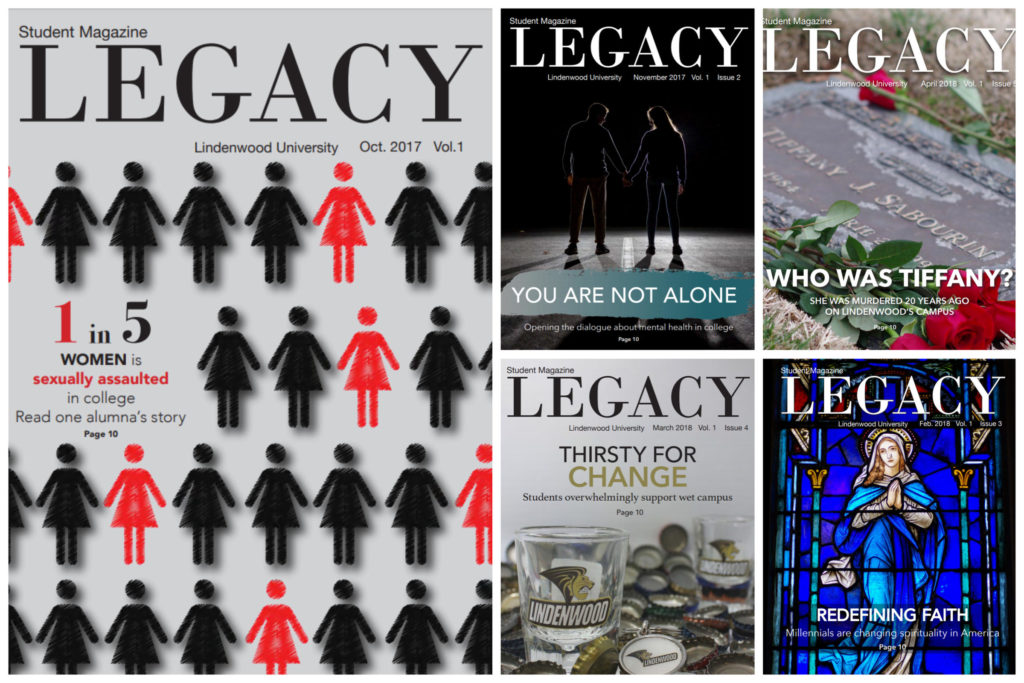 There’s a problem with deep journalism and in-depth reporting. It tends to dig more deeply than a lot of people are comfortable with. According to some of the editorial staff at Lindenwood University, that’s exactly why their print magazine has been cancelled.
There’s a problem with deep journalism and in-depth reporting. It tends to dig more deeply than a lot of people are comfortable with. According to some of the editorial staff at Lindenwood University, that’s exactly why their print magazine has been cancelled.
“Lindenwood University apparently does not support the pursuit of journalism when it is not viewed as positive for the university,” wrote Madeline Raineri, news editor of The Legacy’s print magazine. “Administrators have made that clear by choosing to cut Legacy magazine, the most visible student media on campus,” she continues.
According to Monica Kast writing in the Student Press Law Center, the decision to close the print magazine was announced at a recent meeting between The Legacy’s staff and Joseph Alsobrook, dean of LU’s School of Arts, Media and Communications.
“[Raineri] said students were told at the meeting that ‘print isn’t important and that the experience behind printing could be replicated exactly just with publishing something online.’ The students were also told that the cost of printing a magazine was a concern,” Kast explains.
In backing up his decision, Alsobrook cited a 2016 report by Jill Van Wyke that encouraged the publication to continue expanding into digital content. Van Wyke was interviewed by The Legacy, and agreed that the half-page excerpt of the report used in the meeting was accurate, “but I did not intend to indicate that those platforms should replace print.”
“I think it’s a weak cover-up and a blatant attempt at censorship, to be very honest,” Raineri said, believing the print title was shut down due to in-depth reporting that was critical of the university. Administrators had reportedly voiced concerns in the past that some of the stories might not put the university in the best light.
“This is not the first time student publications have been stopped on Lindenwood University’s campus. From 2000 to 2007, former president Dennis Spellmann shut down the student newspaper for publishing articles critical of him, Raineri said,” Kast notes.
Sports editor Matt Hampton had a slightly different take, saying, “there had been maybe one or two stories that were directly critical of the university, but more than that, what we suspect the decision was based on were stories that were just generally controversial.”
I’m not taking sides on this specific case; we just don’t know enough of the facts yet. But whether it was censorship, budget related, or just a bad strategic marketing decision, one thing is sure. They are missing the boat by eliminating print.
“I think [the administration] really underestimated the importance of print journalism,” Raineri said.
Alsobrook gave the following statement in an interview with St. Louis Publish Radio that proves Raineri’s point: “Americans, particularly young Americans, are consuming more and more and more of their news online, so you know, it’s a question of value, does it need to be printed and we decided no.”
In this time of fast (and fake) news, long-form journalism does fill a valuable and critical role. When a school like Lindenwood University – where they are supposedly training the next generation of media professionals and journalists – decides print’s not important enough to fund, it makes one wonder what’s really behind the decision.

July 16, 2018, 9:57 am
A group of enterprising students or perhaps a graduate should publish it outside of the school and support it with advertising. If I lived in the St. Louis area, I’d be interested in this. Might be a great opportunity. Or, perhaps, tell the school that they will fund the magazine privately, through advertising, and see what the new excuse is.